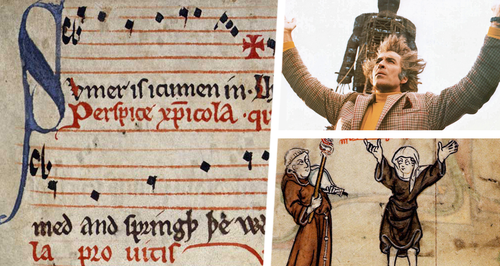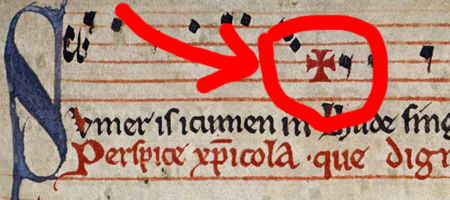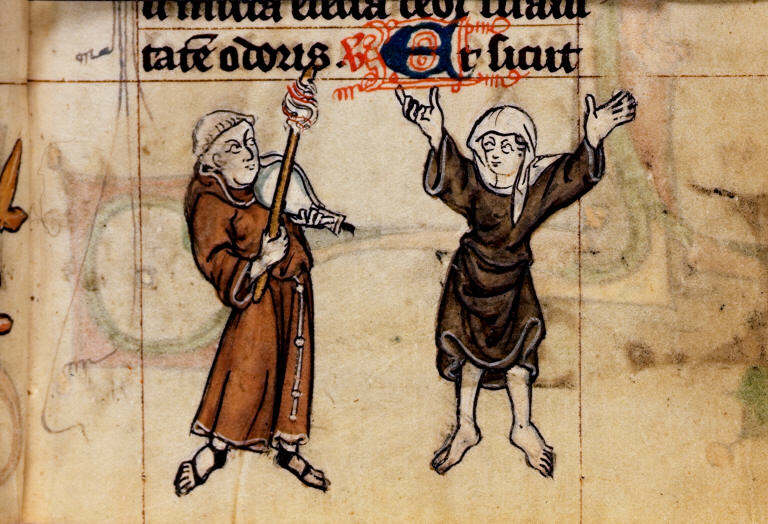On Air Now
Classic FM Breakfast with Dan Walker 6:30am - 9am
18 January 2019, 14:55 | Updated: 18 January 2019, 15:56

This 800-year-old song was written in the 13th century, making it one of the oldest songs in English. It also contains the first recorded use of the word… ahem, 'fart'
This 800-year-old song comes from a miscellany that was probably written in Oxford around 1260 and it's the first recorded use of six-part polyphony.
Listen to the oldest song in history: the 3,400-year-old Hurrian Hymn >
Listen to an 800-year-old Icelandic hymn sung in a train station >
The beautifully preserved manuscript contains poems, fables and medical texts – and is the only written record of ‘Sumer is icumen in’. The song is a ‘rota’ or round, a canon for several voices (in this case six). It describes the coming spring, a singing cuckoo and various excited farm animals. Click the image below for a closer look at the full manuscript in all its glory.
(Image: British Library)
The fact that the song – and this score – has survived to the present day is incredible in itself, but there are a number of other fascinating details buried in it:
First, there are both English lyrics and completely different Latin lyrics. Below the musical staff you can see the lyrics printed in Middle English (black) and Latin (red).
It's the first composition known to have used six-part polyphony – ie six voices singing independent lines.
The Middle English contains several words that are recognisable, although one phrase will need a little explanation. ‘Bucke uerteth’ apparently means, ‘the goat farts’, and is said to be the first usage of this mild profanity in written English.
The man who owned the manuscript also led what you might call a colourful life: William of Winchester, a monk from Reading who might have owned the manuscript, loved music and women. Which was problematic given his vocation.
He was brought before the Bishop of Hereford in the 1270s following allegations that he had slept with a number of women, including a nun.

This is a fascinating piece of musical history. It's an example of musical notation, indicating when each new voice should start. There are Latin directions at the bottom of the manuscript, which translate, according to Wessex Parallel WebTexts, like this: “This round can be sung by four people together... And it is sung in this way: while the others remain silent, one person starts, together with those who are carrying the 'pes'; and when he comes to the first note after the cross, the next one begins, and so on with the others. And the individual singers should stop at the rests where they are written and not elsewhere, for the space of one long note.”
Academics are unsure whether the English lyrics constitute an innocent description of nature responding to the coming spring, or a bawdy ditty about adultery (the cuckoo is the key here – it's close in sound to the word 'cuckhold', which means a man whose wife is unfaithful). But you want to hear the song...
This version is sung by the Hilliard Ensemble.
Uplifting, isn’t it? Like all the joys of spring distilled into choral form. The reaction from 13th-century audiences would have looked something like this:

(Image: British Library)
But what are those odd-sounding lyrics and what do they mean? Here's a translation by the British Library.
Sumer is icumen in,
Lhude sing cuccu!
Groweþ sed and bloweþ med
And springþ þe wde nu,
Sing cuccu!
Awe bleteþ after lomb,
Lhouþ after calue cu.
Bulluc sterteþ, bucke uerteþ,
Murie sing cuccu!
Cuccu, cuccu, wel singes þu cuccu;
Ne swik þu nauer nu.
Pes:
Sing cuccu nu. Sing cuccu.
Sing cuccu. Sing cuccu nu!
Summer has come in,
Loudly sing, cuckoo!
The seed grows and the meadow blooms
And the wood springs anew,
Sing, cuckoo!
The ewe bleats after the lamb
The cow lows after the calf.
The bullock stirs, the goat farts,
Merrily sing, Cuckoo!
Cuckoo, cuckoo, well you sing, cuckoo;
Don't ever you stop now,
Ground (sung by two lowest voices)
Sing cuckoo now. Sing, Cuckoo.
Sing Cuckoo. Sing cuckoo now!
Look, O lover of Christ, what condescension! The heavenly husbandman, because of a fault in the vine, not sparing his son, exposed him to the ordeal of death; and he brings back the half-dead prisoners from torment to life, and crowns them with himself on the throne of heaven.
It was performed at the opening ceremony of the Munich Olympics in 1972:
And a year later it was sung by the islanders during the grisly climax to the horror film The Wicker Man: